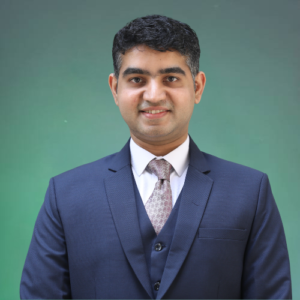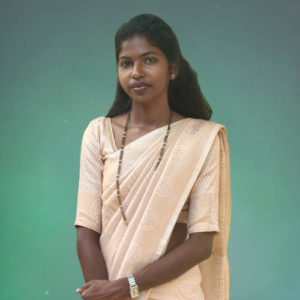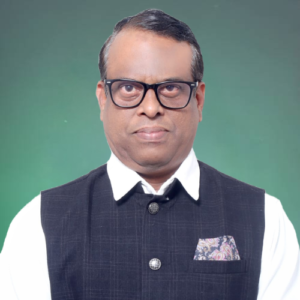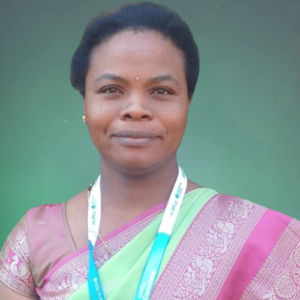Karakushala Kendras: Crafting a Community in Haliyal

Women in Haliyal possess various handicraft skills, such as embroidery and crochet. To share these abilities, the “Karakushala Kendra” was established in Mundwad in 2019, allowing them to create woollen shawls. Additional centers are being planned in other villages. The women in Haliyal have several skills which includes specialised hand embroidery, crochet and quilting among several other handicrafts. Many of these skills are handed down from elders while some are acquired by women during their life’s journey. The need for a space where women can come together became critical. They needed a place to put their skills to use and share techniques with each other. A “cherysh Karakushala Kendra (Handicraft Centre) was inaugurated in Mundwad village in August 2019. Twenty two women work as a group in this village. They make woollen shawls and stoles using the “Khilla technique.” This technique involves a wooden board and nails to make beautiful pieces of fabric in myriad colours. The women have registered their group as SHG and the operations of the enterprise are carried out under its ambit. Another Karakushala Kendra was started in the village of Jogankoppa where women make tapestries using crochet technique. Efforts are in progress to open more “Karakushala Kendras” in the villages of Haliyal.
Training Women for Sugar Cane Entrepreneurship in Haliyal

The Mundwad sugar cane bud nursery initiates agro-allied livelihood groups in Haliyal, empowering women through income-generating opportunities in sugarcane cultivation. Supported by EID Parry Ltd., training has enabled local women to successfully sell saplings and explore further business ventures. The sugar cane bud nursery in Mundwad is the first step towards setting up agro-allied livelihood groups in Haliyal. Haliyal is part of the sugarcane cultivation belt. It offers a bright opportunity for women. They can earn regular income from growing and selling sugarcane buds. This entrepreneurship was developed in partnership with EID Parry Ltd. which is a major sugarcane industrial house in Haliyal. Three women from Mundwad made the idea a reality. They came forth to take training in sugar cane bud cultivation. This training came from the center run by EID Parry at Nellikkuppam in Tamil Nadu. The first group was formed by five women from Haliyal. They are supported with training, seed funding and expert advice from cherysh and EID Parry. The business is progressing successfully as the group has started selling the saplings at a profit. More such opportunities are being explored in the villages of Haliyal.
Transforming Lives: Women Educators in Education

The cherysh Shiksha learning program trains local women to become Learning Facilitators. Mr. James D’Souza, a high school teacher from Haliyal, selects and trains these young, qualified women. The cherysh saadhan learning program has a fantastic initiative to develop local Learning Facilitators. They select and train young, qualified women from the community to become Shikshas’ educators. Mr. James D’Souza, a high school teacher from Haliyal, coordinates the training program. He brings his teaching experience from the local high school. He also has an impressive command of functional English from his studies at the Regional Institute of Language. Every week, they have training classes with lots of activities, songs, and plays. Many trainers have worked hard over the years. They provided hundreds of hours of coaching. With the support of the program, 37 young women from Haliyal have become confident educators. They now have regular incomes.
Training Sessions Enhance Learning Facilitators’ Skills

This academic year kicked off with training sessions for Learning Facilitators, thanks to The Meghshala Foundation. They focused on using the Meghshala App and teaching techniques, helping educators create a better learning environment for students in Haliyal. To start the academic year, several training sessions were conducted. Our Learning Facilitators attended these sessions, which were held in partnership with The Meghshala Foundation. Meghshala designs the digital learning modules that are taught in the Shikshas with the use of tablets. A few training sessions were held over the summer. They focused on the use of the Meghshala App and the accompanying study modules. Our learning facilitators are use the app on tablets they are provided with tablets to teach in the Shikshas. These training covered the different elements in the digital modules. They also explained how the learning facilitators can use them in Shikshas. In June, a two day training session was held and was conducted by Mr. Manjunath Hemapur of Meghshala. This training was more focused on teaching techniques outside of the app. It equipped our Learning Facilitators with more active tools to encourage learning in their Shikshas. They were taught a handful of group activities as a part of this. Some topics were covered to make the learning facilitators understand that each child learns at a different pace. It is important for the children to question and make mistakes to really learn. Our learning facilitators learned a lot about their role in creating a positive learning environment for their students. They understood how their behavior and seriousness are reflected in their students. These leanings will make the learning facilitators more efficient. Our Shikshas will also become more efficient in imparting learning. This improvement will enhance the quality of education available to the children in Haliyal.
KLE Tech University Students Transforming Villages Through RITE

Rural Innovation Through Education (RITE) is a collaborative volunteer initiative with KLE Tech University, where engineering students engage with children in Haliyal villages, with over sixty college students participating so far. Rural Innovation Through Education (RITE) is a volunteer programme, implemented in collaboration with KLE Tech University, Hubli. Engineering students from the University engage with the children in the villages of Haliyal through the programme. More than sixty college students have participated in the RITE programme so far.
Exploring Livelihood Strategies in Rural India

Exploring Livelihood Strategies in Rural India Last month, I assisted cherysh Trust’s educational projects in Haliyal, gaining insights into project management and community needs. The experience highlighted the importance of inclusive environments, challenges like unreliable electricity, and the determination of local women in sustainable development efforts. Hi, I’m Samantha Kennedy, an intern from the University of Ottawa. Last month, I visited Haliyal. I had the pleasure of lending a hand with cherysh Trust’s learning and livelihood projects in rural communities. It was an eye-opening experience. I gained valuable insights into project management through training, inspections, and a pilot evaluation project. The Meghshala training really motivated the learning facilitators to take their roles seriously and appreciate the importance of their work. It was great to see the young mothers being accommodated. They were allowed to bring their children along, creating a welcoming and inclusive environment for collaboration and empowerment. We conducted a pilot project to assess the impact of after-school learning programs on students. Pilot projects are a great way to find potential issues and build a successful program. We also visited villages to watch how Shiksha runs and uses cherysh’s learning tools. Tablets are a fantastic way to expose children to innovative learning. Nonetheless, the unreliable electricity can make it difficult to update and charge them. I had never experienced this challenge before. It really opened my eyes to how it affects access to education. I also had the chance to meet and interview the women group that cultivates sugarcane buds. Nurseries, a successful livelihood project run by cherysh, provided firsthand insights. I learned about its successes, challenges, and future prospects from the women who are directly affected. This understanding is crucial for creating a program that meets the needs of the community and promotes sustainable development. My extended stay really gave me a deeper understanding of how the program is being implemented. I talked to the community members. I identified areas where we could offer support. I also observed the challenges they’re facing. Despite the difficulties, the women’s determination to build a better life was truly inspiring. The warm hospitality and kindness of the community really showcased their beauty. Being in a different environment really broadened my perspective on international development. My visit to Haliyal was an absolute pleasure, and I’m so grateful for the support that made it possible.
Empowering Kids Through Community Learning Spaces

Cherysh Shiksha After School Learning Centres target all-round development of children through quality support to their learning needs. The cherysh Shikshas aim to foster village neighborhood learning spaces. These include community homes or common rooms. In these spaces, children can learn, aspire, and progress. Selected and trained community women serve as Learning Facilitators. The Shikshas offer augmented learning support to over a thousand children through an Active Rural Curriculum. This curriculum incorporates activity-rich approaches like music, art, puppetry, and games to teach English and Math. Phonics-based English learning is followed, with Learning Facilitators using phonics modules on digital devices in their classrooms. This program builds a strong foundation for English, the most challenging topic for rural Indian students. Beyond English, children get help with schoolwork, revision, and exam preparation. A day is dedicated to sports and physical activities, with all Shikshas equipped with sports kits. Arts and creative skills workshops are conducted in all Shikshas. They offer hands-on practice in clay modeling, paper crafts, and creative writing. Participants also engage in plays, songs, and dance. These activities are led by experienced trainers. From 2015 to 2019, cherysh covered 26 villages, with 37 Shikshas, 37 Learning Facilitators, and over a 1000 children enrolled. Future plans include expanding to more villages in the region.
Empowering Education: Tackling Digital Disparities Post-Covid

Tech is the future, and we are introducing computer science through infrastructure and education in the villages of Haliyal district, Karnataka. The Covid-19 pandemic highlighted the paramount importance of technology in the education sector. Urban schools and colleges successfully transitioned to online learning platforms. Rural areas faced significant challenges due to limited infrastructure. They also struggled with technical skills. We identified disparities that necessitated attention. Thus, we established a collaborative partnership with The PiJam Foundation. Our goal is to transform eight Shiksha Centers into digital learning hubs. These centers will use low-cost, open-source technology and Raspberry Pis to foster computer literacy among students. The curriculum will encompass Physical Computing, Programming, and Digital Making, equipping students with essential problem-solving and design thinking skills. Learning Facilitators will undergo comprehensive training over a year to transform into Tech-Learning Facilitators. This initiative aims to enhance computer science knowledge among girls and Learning Facilitators. It ensures their preparedness for the evolving digital landscape. ThoughtWorks and Innovative Technology Trust generously supported this transformational project.
Enhancing Teaching Quality with CherYsh and CFTE

CherYsh collaborates with CFTE and Ontum Education Pvt. Ltd. to deliver innovative digital education. Meghshala’s STEAM (STEM + Art) modules align with CherYsh’s goals, offering e-lessons enriched with images, videos, and strategies. The content is accessible offline via tablets used by our Learning Facilitators, thereby ensuring learning continuity even in areas with limited internet access
Digital Tools Transforming Education in Shikshas

Technology enhances learning in shikshas by equipping Learning Facilitators with digital tablets for e-learning, facilitating audio-visual teaching, and enabling online attendance tracking for efficient education management. Technology is used extensively to make learning more efficient in the shikshas. Each Learning Facilitator is equipped with digital tablet in which e-learning modules are made available. Facilitators use the tablet to aid teaching with audio visual content and thereby make learning easy and interesting. The online attendance tracking system is enabled such that Learning Facilitators can record attendance on their digital devices, daily. Foundation and refresher training are conducted at regular intervals










